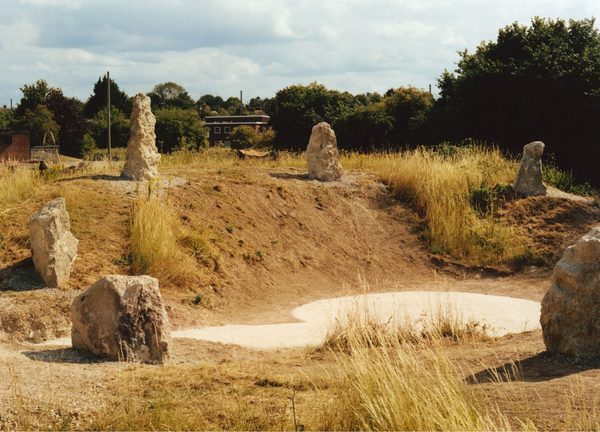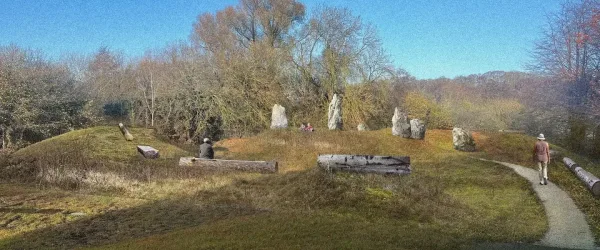I am excited to spend next week with the Big Chalk Partnership, hearing about its plans for nature recovery across 19% of England and visiting these iconic landscapes and projects. To meet the ambitious goal of securing 30% of land and sea for nature by 2030 (known as 30 by 30), ambition at this scale is essential. The UK Government, alongside 95 other nations, has committed to this target as part of the United Nation’s Leaders’ Pledge for Nature. However, it’s not just about hitting numbers; it’s about fostering true, meaningful change across our landscapes.
In 2009, I was asked by the UK Government to prepare a strategy to address the nature crisis, which led to the creation of the 2010 Making Space for Nature report.
My recommendations were simple yet profound: we need more, bigger, better, and joined-up spaces for nature. The idea of ‘joined up’ doesn’t require continuous land—stepping stones of restored habitat, buffer zones, and wildlife corridors can allow wildlife to move through landscapes. These principles still hold true, but with each passing day, the urgency to act intensifies.
True transformation happens when we think big—when we plan and act across landscapes and organisational boundaries. But we must not lose sight of the bigger picture in pursuit of the 30% target. If we focus solely on the numbers and creating new habitats, we risk overlooking the critical need for larger, better managed and connected spaces for nature – such as our internationally important chalk and limestone grasslands and chalk rivers.
Without a comprehensive nature strategy backed by sufficient funding, we risk failing nature, and in turn, jeopardizing our own future. Big Chalk points the way to delivering on our promise.
Then there’s climate change, which is accelerating nature’s decline at an alarming rate. For instance, the UK’s kittiwake population has plummeted by 70% since 1986 due to a diminishing supply of sand eels, a vital food source. Similarly, 48% of moth species and 60% of aphids have declined due to climate change. National Landscapes cover around 14% of England’s land, with National Parks accounting for 8%, which might suggest we’re close to the 30% target. But designation alone isn’t enough; true protection for nature requires coordinated action across multiple stakeholders, including landowners, farmers, and conservation organizations.
This is where landscape-scale delivery by partnerships of like-minded people and organisations becomes vital —it’s what truly drives change. We must resist the temptation to merely chase targets and instead focus on what matters: creating resilient, connected spaces that allow nature to move and thrive. Failing to do so is a failure not only to nature but to ourselves.
I’ve seen first-hand the difference this approach can make. As Chair of the North Pennines National Landscape’s Tees-Swale: Naturally Connected programme—a joint initiative with the Yorkshire Dales National Park—I’ve witnessed the power of collaboration. This project, funded by the National Lottery Heritage Fund, brings together farmers, landowners, and conservationists across 845 square kilometres to integrate nature with farming and land management.
Humans are an integral part of the ecosystem, as emphasised by the International Union for the Conservation of Nature’s definition of protected landscapes and seascapes. A thriving natural environment is not a luxury—it’s a necessity. The habitats that wildlife needs are the same ones that provide us with clean air, clean water, flood defences, and the natural spaces that inspire us and support our well-being. The chalk landscapes of southern England are a great example – the aquifer which sits beneath stores and supplies water to a large proportion of the population.
Collaboration is at the heart of what we do and must continue to do - it’s the key to achieving a truly connected, thriving natural landscape across England. The challenge is immense, but with bold, landscape-scale thinking, such as that embodied by Big Chalk, we can rise to meet it.
Join our partnership
Realising our vision depends on building a broad, representative partnership – we do together what we cannot do alone.
If you would like to discuss joining the Big Chalk Partnership, please email David Hoccom.
Register your project
The Big Chalk programme is made up of a dynamic and evolving suite of partner-led projects. These may do different things, cover different areas and have different partners but they all have two things in common – they contribute towards delivering the Big Chalk vision and the Big Chalk Board has agreed they can be registered as a Big Chalk Project.
Once registered, a Big Chalk Project can use the Big Chalk brand on its materials, benefiting from an enhanced profile as well as access to networking, shared learning and best practice. Importantly, Big Chalk Projects are recognised as being part of a collective effort to secure the future of nature in southern England’s iconic chalk and limestone landscapes.
The registration process begins with submission of an online form.
Join a topic group
Knowledge transfer within the Big Chalk Partnership happens through a series of topic groups, which meet online three to four times a year. These currently cover:
- Land management for nature’s recovery
- Working with farmers and land managers
- Developing landscape-scale programmes
- Local nature recovery strategies
- Evidence, data and recording
- Natural capital
- Health, wellbeing & engagement
If you are interested in joining a Big Chalk topic group, please email Bruce Winney.
Become a funder or partner
We would love to hear from you if your organisation can help fulfil our mission and contribute to delivering our vision of nature-rich chalk and limestone landscapes that benefit all of us.
If you would like to discuss funding or partnering with Big Chalk, please email David Hoccom.



